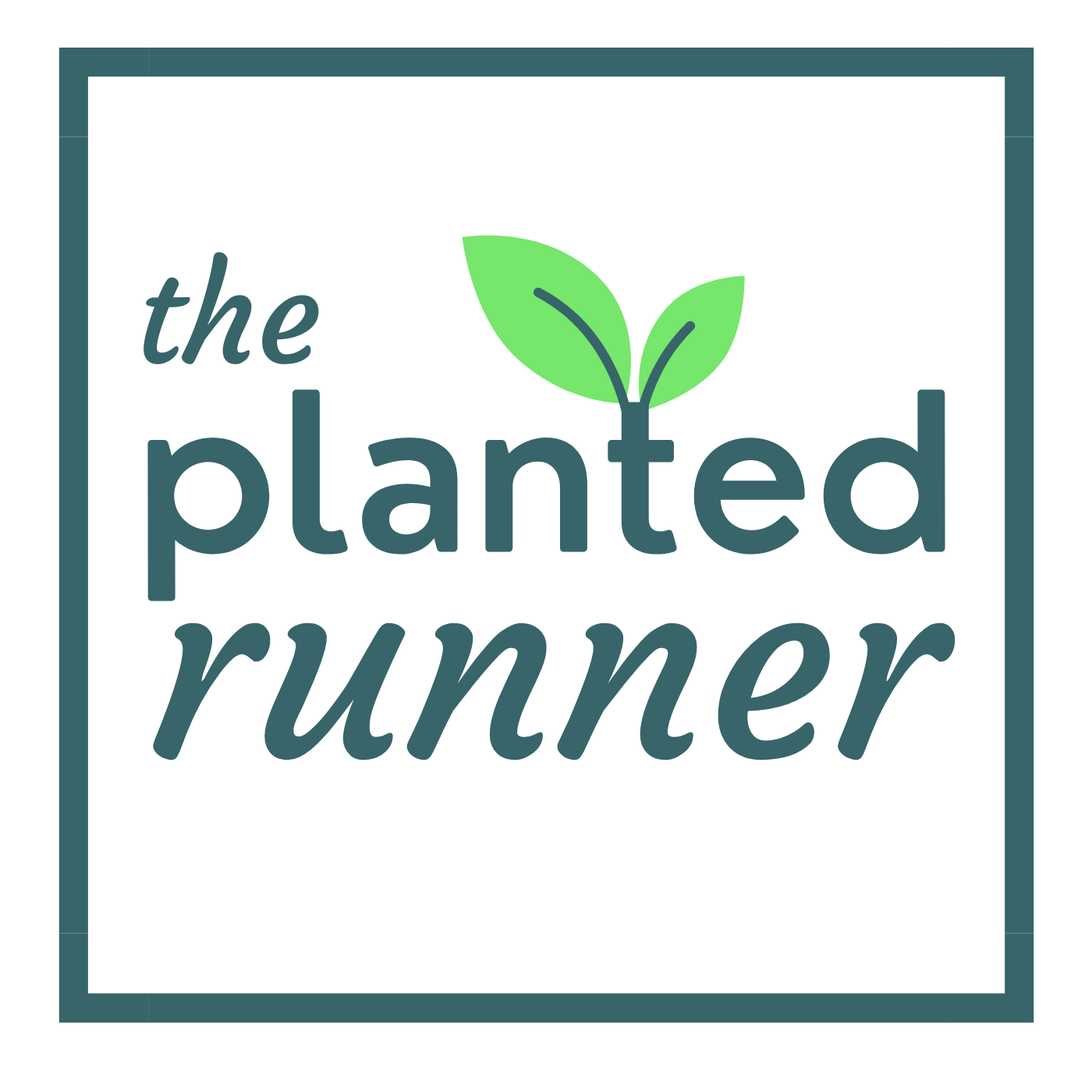More people than ever are learning the benefits of being a plant-based runner. Plants provide an incredibly rich fuel source that can lead to optimum health and performance, if done right.
I’ve fallen down the rabbit hole again.
An innocent browse through my phone and before I know it, I’m reading scientific nutrition papers well past my bedtime. (Yes, that’s my idea of a good time!)
What caught my attention this time was this paper outlining specific, scientific guidelines on how to fuel vegan athletes.
The Science of Plant-Based Fueling
No more guessing or cobbling together various bits and pieces from all over the internet. This is a comprehensive analysis of what the best science says now about how to fuel a vegan athlete for health and performance.
Written by David Rogerson and published in the Journal of the International Society of Sports Nutrition, this long paper takes all the available data out there and sifts through the good and the bad. It explores the praises and the pitfalls of a plant-based vegan diet and how it specifically applies to athletes.
I’ll give you the highlights and my take on them.

I’m always open-minded to learn something new that could make my nutrition just a little bit better and better help my athletes.
Unfortunately, there is not a lot of scientific research specifically on the plant-based runner or vegan athlete. Roberson admits that some of the information has to be extrapolated from non-vegans. Sure, vegan athletes are becoming more visible, but it’s not like there are enough of them yet to conduct widespread, double blind, replicable nutrition studies.
But even without perfect studies, the plant-based movement is becoming popular enough that athletes and sports nutritionists are looking for answers.
Vegan and Plant-Based Are Not the Same Thing
One issue is that the word “vegan” can mean a huge range of eating styles. Some believe that if it didn’t come from an animal, it’s fair game. Others, myself included, base their food selections on whole, unprocessed food, free of artificial ingredients. In other words, “junk food vegans” and raw, microbiotic herbivores (not me!) can’t all be lumped together.
So let’s assume that the vegans that are being referred to in this analysis are less the Oreo-cookie-and-French-fry vegans and more the whole-foods variety.

The author does not seem to think that vegan athletes have an easy road. He states that “while little data could be found in the sports nutrition literature specifically, it was revealed elsewhere that veganism creates challenges that need to be accounted for when designing a nutritious diet.”
Well, sure, eating just plants can be challenging at first. You do need to make sure that you are getting in beans, greens, seeds, nuts, fruits, whole grains and veggies each and every day, but once you get in that habit, it becomes second nature.

All Diets Can Be Deficient
Nearly all nutrition guidelines seem to claim that just about everyone is missing some kind of nutrient, no matter what diet. An omnivore runner needs to pay attention to his or her micronutrient needs just as much as a plant-based runner so a lot of the information in the paper is fairly universal.
Roberson points out that vegans and vegetarians do need to be mindful of several nutrients. Specifically, “the sufficiency of energy and protein; the adequacy of vitamin B12, iron, zinc, calcium, iodine and vitamin D; and the lack of the long-chain omega-3 fatty acids EPA and DHA in most plant-based sources.”
I personally have zero trouble getting all my calories in, so I’m not deficient in energy (aka calories). I love to eat and love to eat big portions, so I rarely ever have the issue of eating too little.
“Achieving a high energy intake is difficult in some instances,” Roberson writes, “owing to plant-based foods promoting satiety.” In other words, plants make you feel full and satisfied! In fact, this is one of the great benefits of eating plants.
You get to eat a lot and you get to feel full!
But if you are a new plant-based runner, you might want to track your calories for a little while to be sure you are eating enough.
Let’s take a deeper look into the recommendations that a plant-based runner needs to pay attention to. Come down the rabbit hole with me!
Protein
From the studies cited in the article, many vegan athletes tend to fall short of optimum protein levels. Furthermore, fewer plant proteins contain all of the 8 essential amino acids required by the body. A glass of cow’s milk, for example, will be a complete protein, while a glass of almond milk will fall short.
But this fact is easily rectified by eating a variety of sources of protein throughout the day (it doesn’t have to be the same meal). Grains, legumes, nuts and seeds while provide all the protein needed to support recovery and adaptation from training.
Aim for 1.2-1.4 grams of protein per kilogram of body weight for endurance athletes, 1.8-2.7 if you are trying to lose fat. I can easily reach this target most days with whole foods and tend to come in somewhere around 1.75 and 2g/kg a day per pound of bodyweight.
When I need more convenience, adding a protein bar or using a high-quality protein powder just makes life so much easier. Here’s my favorite brand.
Carbohydrates
This is where plant-based athletes shine. “Vegan diets tend to be higher in carbohydrates, fibre, fruits, vegetables, antioxidants and phytochemicals than omnivorous diets,” Robertson concludes. “The consumption of micronutrient and phytochemical-rich foods is an important benefit of any plant-based diet. This might help to mitigate the effects of excess inflammation and promote recovery from training.”
Endurance athletes should aim for 4g to up to 12g of carbohydrate per kilogram of body weight depending on training load. I easily reach 6-8g/kg a day or 55-65% of daily calories.
Fat
Roberson notes that fat intake needs to focus on quality intake instead of quantity. He admits that the relationship between fat consumption and athletic performance needs additional study. It’s almost too easy to meet the fat guidelines with avocados, nuts and seeds.
Endurance athletes should consume 0.5–1.5 g of fat per kilogram of body weight per day (or 30% of daily caloric intake) through avocados, nuts and seeds. I’m generally in the 25-35% range and well over 1g/kg.
ALA, EPA and DHA
Unless you’re eating salads of seaweed and microalgae, vegans are not getting many dietary sources of the omega-3 fatty acids, ALA, EPA, and DHA. You can consume ALA in walnuts and flaxseeds, but as little as 0.5% convert in the body to DHA. This may have important performance implications as omega-3s play an big role in cardiovascular health.
Fish aren’t the only living beings in the ocean that supply omega-3s. Supplementing with microalgae oil combined with whole-food sources of ALA might benefit health as well as performance.
The recommendation is 500-1000mg DHA to EPA in a 2:1 ratio or 2-4 commercially available capsules a day. I use this brand.
Micronutrients
Vegan diets tend to be higher in micros than omni diets, but attention does need to be paid to a handful of them.
-
- B12 (vegans should supplement)
-
- iron (get a blood test to determine if you need to supplement)
-
- calcium (greens, broccoli, beans and fortified foods are great sources)
-
- vitamin D3 (“further research is warranted to determine optimal vitamin D doses for athletes”)
-
- zinc (beans, whole grains, nuts, and seeds to the rescue again!)
-
- iodine (choose iodized salt over sea salt).
And now the really interesting part, ergogenic (or performance enhancing) aids:
-
- Creatine: The classic bodybuilders’ supplement may actually help endurance athletes. Its effect may be more pronounced in vegans and vegetarians who have naturally lower muscle stores of creatine. “Creatine supplementation might also lead to increased plasma volume, improved glycogen storage, improved ventilatory threshold, and reduce oxygen consumption during submaximal exercise.” It can initially cause some water weight can so start small (3-5g per day) until your body adapts. I use this brand of creatine every day.
-
- Beta alanine: If you are racing at high intensity for longer than 60 seconds, your performance might benefit from this beta amino acid, which is mainly found in meat and poultry. Because vegans’ muscles would be low in this amino acid, supplementation would theoretically help vegans even more dramatically than omnivores who might have larger reserves. (The article was not as clear about whether or not this would apply to the marathon distance which is not at high intensity.)
The Bottom Line for the Plant-Based Runner
The paper ended with the following conclusion:
Through the strategic selection and management of food choices, and with special attention being paid to the achievement of energy, macro and micronutrient recommendations, along with appropriate supplementation, a vegan diet can achieve the needs of most athletes satisfactorily.
All athletes need to pay attention to their diets, just like they pay attention to their training. Perhaps plant-based athletes need to focus on things a little differently than omnis, but it’s great to know that the science is starting to catch up with us!

